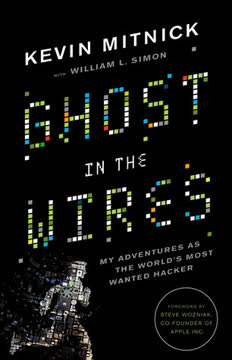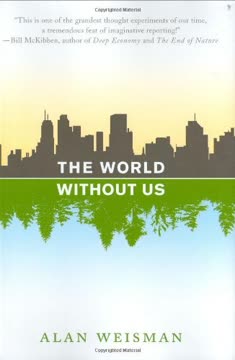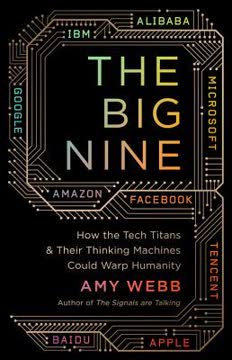Key Takeaways
1. The Birth of Silicon Valley: From Hardware to Software Revolution
"Everything starts with Doug Engelbart."
From ARPANET to the PC: Silicon Valley's journey began with government-funded projects like ARPANET in the 1960s. Doug Engelbart's groundbreaking "Mother of All Demos" in 1968 showcased revolutionary concepts like the mouse, hypertext, and graphical user interfaces. This laid the foundation for personal computing.
Xerox PARC and Apple: Xerox's Palo Alto Research Center (PARC) further developed these ideas, creating the Alto computer with a graphical interface and mouse. Steve Jobs' visit to PARC in 1979 inspired Apple's Macintosh, which brought these concepts to the masses. The transition from hardware-focused companies like Fairchild and Intel to software-centric firms marked a significant shift in the Valley's focus.
The rise of gaming: Atari, founded by Nolan Bushnell, pioneered the video game industry with Pong and the Atari 2600 console. This not only created a new entertainment medium but also influenced the Valley's culture of innovation and risk-taking.
2. The Internet Boom: Netscape, eBay, and the Dot-Com Bubble
"There was a lot of talk about IPOs that we had an Initial Pumpkin Offering for Halloween."
Netscape ignites the web: Jim Clark and Marc Andreessen's Netscape Navigator browser made the internet accessible to the masses, leading to the first major internet IPO in 1995. This sparked the dot-com boom, with countless startups rushing to capitalize on the web's potential.
eBay's novel approach: Pierre Omidyar's eBay introduced a new model of e-commerce, leveraging user trust and community. Its success demonstrated the internet's power to create new markets and business models.
The bubble bursts: The period from 1995 to 2000 saw irrational exuberance, with many companies receiving massive valuations despite lack of profits. The bubble burst in 2000-2001, leading to a tech industry shakeout. However, companies like Amazon and eBay survived and thrived, proving the long-term viability of internet businesses.
3. Google's Rise: Revolutionizing Search and Advertising
"Information wants to be free."
Stanford origins: Larry Page and Sergey Brin's PhD project at Stanford led to the development of PageRank, a revolutionary algorithm for ranking web pages based on their importance.
Innovative business model: Google's success came from two key innovations:
- AdWords: allowing advertisers to bid on keywords
- AdSense: extending advertising to third-party websites
These created a highly profitable and scalable business model that fueled Google's rapid growth and dominance in search and online advertising.
Unique culture: Google's approach to hiring, workplace environment, and innovation (like the "20% time" policy) set new standards for tech company culture, influencing countless startups and established firms alike.
4. Apple's Renaissance: From iMac to iPod
"I want to make a music device and I want it to hold all your music, I want it to be digital, with great software so you could take your music everywhere."
Jobs' return: Steve Jobs' return to Apple in 1997 marked the beginning of a remarkable turnaround. The iMac's success helped stabilize the company financially.
iPod revolution: The iPod, launched in 2001, transformed Apple from a computer company to a consumer electronics giant. Key factors in its success included:
- Sleek design and user-friendly interface
- Integration with iTunes software
- iTunes Music Store, launched in 2003, providing legal digital music downloads
Shift to mobile: The iPod's success laid the groundwork for the iPhone and iPad, cementing Apple's position as a leader in mobile computing and setting the stage for the smartphone revolution.
5. The Social Media Era: Facebook's Meteoric Ascent
"I'm CEO... bitch."
Dorm room origins: Mark Zuckerberg's creation of Facebook at Harvard in 2004 initially targeted college students, providing a digital version of campus face books.
Rapid growth: Facebook's expansion strategy included:
- Gradual rollout to other universities
- Opening to high school students in 2005
- Becoming available to everyone over 13 in 2006
Cultural impact: Facebook's growth coincided with broader trends in social media, fundamentally changing how people connect, share information, and consume content online. Its success influenced countless other social platforms and reshaped the internet landscape.
6. Napster and the Music Industry Disruption
"Users will understand that they are improving their experience by providing information about their tastes without linking that information to a name or address or other sensitive data that might endanger them—especially since they are exchanging pirated music."
Peer-to-peer revolution: Shawn Fanning and Sean Parker's Napster, launched in 1999, enabled easy sharing of MP3 files, disrupting the traditional music industry model.
Legal battles: The music industry's aggressive legal response to Napster highlighted the tension between technological innovation and existing business models. While Napster was eventually shut down, it paved the way for legal digital music services like iTunes and Spotify.
Long-term impact: Napster's legacy includes:
- Accelerating the shift to digital music consumption
- Influencing the development of peer-to-peer technologies
- Forcing the music industry to adapt to new distribution models
7. The Hacker Ethic and Silicon Valley's Unique Culture
"We shape our tools, and then our tools shape us."
Countercultural roots: Silicon Valley's culture was heavily influenced by the 1960s counterculture, emphasizing personal empowerment through technology.
Hacker ethos: Key principles of the hacker ethic include:
- Information should be free
- Mistrust authority and promote decentralization
- Judge people by their contributions, not credentials
- You can create art and beauty on a computer
Work hard, play hard: The Valley's culture blended intense work ethic with a playful, sometimes hedonistic atmosphere, as exemplified by:
- Atari's party culture in the 1970s
- The Homebrew Computer Club's collaborative spirit
- Google's "don't be evil" motto and quirky office perks
- Facebook's early "move fast and break things" mentality
This unique culture fostered innovation but also led to controversies and ethical challenges as tech companies grew more powerful.
Last updated:
FAQ
What's Valley of Genius about?
- Exploration of Silicon Valley: Valley of Genius by Adam Fisher explores the history and culture of Silicon Valley, focusing on the key figures and companies that have shaped the tech landscape.
- Interviews with Innovators: The book includes interviews with influential personalities like Steve Jobs, Larry Page, and Mark Zuckerberg, providing firsthand accounts of their experiences and insights.
- Cultural and Economic Shifts: Fisher examines how the tech boom transformed the economy and culture of Silicon Valley, highlighting the interplay between innovation, entrepreneurship, and societal change.
Why should I read Valley of Genius?
- Insightful Perspectives: The book offers a deep dive into the minds of the innovators who built Silicon Valley, providing valuable lessons on creativity, resilience, and the entrepreneurial spirit.
- Rich Historical Context: Understanding the evolution of Silicon Valley through the stories of its key players helps contextualize today’s tech landscape.
- Engaging Storytelling: Adam Fisher’s narrative style combines thorough research with engaging storytelling, making complex technological concepts accessible and enjoyable.
What are the key takeaways of Valley of Genius?
- Innovation Requires Vision: True innovation often stems from visionary thinkers who challenge the status quo.
- The Importance of Community: Fisher highlights the role of community and collaboration in fostering innovation, as seen in the early days of companies like eBay and Napster.
- Cyclical Nature of Technology: Technological trends often experience cycles of hype and disappointment, as seen with virtual reality and the dot-com boom.
What are the best quotes from Valley of Genius and what do they mean?
- “If all a lab needed was a head-mounted display, we would sell them that.” - Jaron Lanier. This reflects the modular approach to innovation, emphasizing flexibility in technology development.
- “The Macintosh wasn’t a computer—it was a program to make things move in front of Steve’s eyes.” - Steve Wozniak. This highlights the importance of user experience and design in technology.
- “The web is the first of the new ‘interactive media’ to give us so little for so much.” - The Duke of URL. This critiques the commercialization of the internet, pointing out the irony of exploitation and commodification.
How did eBay start according to Valley of Genius?
- Philosophical Experiment: Pierre Omidyar created eBay as a philosophical experiment to explore the power of markets and the belief that people are fundamentally good.
- Community-Driven Growth: The platform relied on the honor system, fostering trust and community, which led to rapid growth.
- Feedback Mechanism: Omidyar implemented a feedback forum that allowed users to rate each other, building a reliable marketplace.
What role did Napster play in the evolution of the internet?
- Pioneering File Sharing: Napster revolutionized music access and sharing, fundamentally changing the music industry and setting the stage for future streaming services.
- Cultural Impact: The platform sparked a cultural debate about copyright, ownership, and the ethics of sharing digital content.
- Legacy of User Empowerment: Napster demonstrated the potential of user-driven content sharing, paving the way for platforms like YouTube and Spotify.
How did the dot-com boom affect Silicon Valley?
- Rapid Growth and Speculation: The dot-com boom led to an influx of investment and a surge in new tech companies, creating a speculative frenzy.
- Cultural Shifts: The boom attracted a diverse group of entrepreneurs and dreamers, creating a vibrant environment filled with innovation and ambition.
- Inevitability of a Bust: The rapid growth led to unsustainable practices, culminating in the dot-com crash of 2001, setting the stage for significant failures and lessons learned.
What challenges did General Magic face?
- Timing and Market Readiness: General Magic struggled with timing, as their innovative products often arrived before the market was ready.
- Shift in Focus: Internal conflicts regarding the company's direction led to a loss of momentum and innovation.
- Competition and Evolution: General Magic was overshadowed by emerging competitors who capitalized on advancements in technology.
How did Google emerge from the tech landscape?
- Innovative Search Technology: Google was born out of Larry Page and Sergey Brin’s desire to create a more effective search engine using their PageRank algorithm.
- Support from Investors: Early funding from influential investors allowed Google to scale operations quickly.
- Cultural Fit and Leadership: The hiring of Eric Schmidt as CEO brought experienced leadership, fostering a culture of innovation and creativity.
What does Valley of Genius say about the future of technology?
- Cyclical Nature of Innovation: Technology often experiences cycles of hype and disillusionment, which can help entrepreneurs navigate future trends.
- Importance of Visionaries: Visionary leaders play a crucial role in shaping the future of technology by harnessing available resources for groundbreaking innovations.
- Community and Collaboration: The success of companies like eBay and Napster illustrates how shared experiences and support can lead to transformative ideas.
How does Valley of Genius address the theme of innovation?
- Innovation as a Process: Innovation involves execution and iteration, with successful products resulting from continuous improvement.
- Collaboration and Community: The role of collaboration in fostering innovation is emphasized, with the Silicon Valley community supporting and inspiring entrepreneurs.
- Disruption and Change: Disruptive technologies can reshape industries and create new markets, as seen with companies like Google and Facebook.
What role does culture play in Silicon Valley, according to Valley of Genius?
- Entrepreneurial Spirit: Silicon Valley's culture encourages risk-taking and experimentation, essential for innovation.
- Diversity of Ideas: The diversity of thought and background among innovators contributes to a rich tapestry of ideas.
- Community Support: The collaborative nature of Silicon Valley's culture means entrepreneurs often support one another, sharing resources and knowledge.
Review Summary
Valley of Genius offers an uncensored oral history of Silicon Valley through interviews with key figures. Readers appreciate the unique format and insider perspectives, praising its ability to fill knowledge gaps about tech history. Many find it engaging and inspirational, highlighting pivotal moments and cultural shifts. Some criticize the bias towards founders' narratives and lack of diversity. The book's structure, while innovative, can be challenging for some readers. Overall, it's considered a valuable resource for understanding Silicon Valley's evolution, though opinions vary on its comprehensiveness and focus.
Similar Books










Download PDF
Download EPUB
.epub digital book format is ideal for reading ebooks on phones, tablets, and e-readers.




